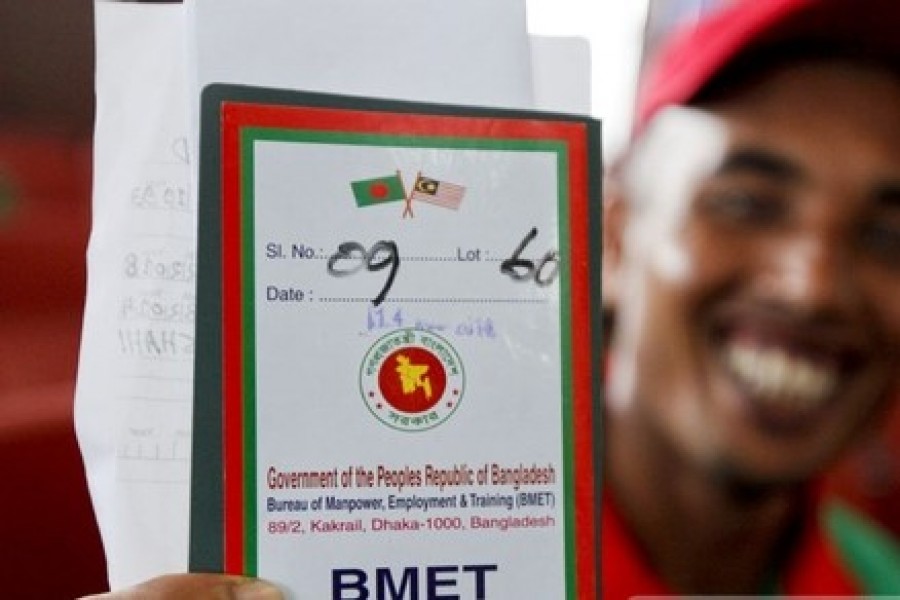Things do not seem to get right for workers' migration to Malaysia. Ever since Malaysia emerged as a destination for employment of Bangladeshi expatriate workers decades ago, there have been hiccups, one after another, seriously affecting the migration process. Flouting of job contracts by employers, irregularities in recruitment by local recruiting agents, exorbitant migration fees, unacceptable workplace conditions and so on figured time and again to dent whatever good intent both countries had in mind to keep the process going. The irregularities went too far to invite a moratorium on labour migration for three and a half years. Now that the moratorium is gone and migration process has started afresh, it is the extremely high fees charged by local recruiters in defiance of government instructions that threaten to bungle the process.
In fact, the fees now being charged by the recruiters are five times higher than that set by the government recently. The government through a circular had set the maximum migration cost at Tk 78,990, while the recruiters are reportedly charging a worker between Tk 350,000 and Tk 400,000. The cost set by the government included various fees, including passport fee, medical test fee, welfare fee, insurance fee, BMET smart card fee, pre-departure fee, uniform fee, and recruiting agency service charge, among others. In the same circular, the expatriate welfare ministry said that as per the contract signed between the two countries, the Malaysian recruiter will bear the rest of the expenses including the Malaysian government's immigration security fee, processing fees, visit pass, medical test fee, immigration security clearance, air ticket for the first-time entry, any Covid-19-related test or quarantine cost, if needed.
Concerned quarters hold that while it is the syndication in the recruitment process which is the key factor, a lack of government monitoring is no less responsible for high costs. Due to unaffordable costs, they fear the potential labour market might get shut again. What transpires from reports is that corruption at both ends -- the recruiters and the employers -- is at the root of the wrongdoings that the concerned ministry has little or no control to set right. It may be noted that the Malaysian authorities selected 25 manpower agencies from Bangladesh to do the recruiting job. It has been learnt from reports that the agencies had to pay money to their Malaysian counterparts to get visas for workers, and now they are passing the burden on to the hapless jobseekers.
The obvious question now is, since the migration procedure and all pros and cons of the arrangement were inked by the two governments, is it not the duty of the Bangladesh authorities to take up the issue with their Malaysian counterparts to settle the problems facing the workers? The expatriate welfare minister has reportedly said necessary actions would be taken if specific allegations were received by the ministry. There is no reason why the ministry and the Bureau of Manpower, Employment and Training (BMET) should not be aware of the gross misdeeds. It's time that the authorities sat up and did the needful.


